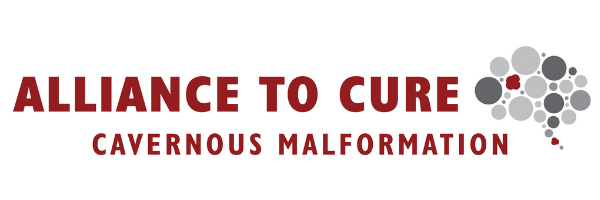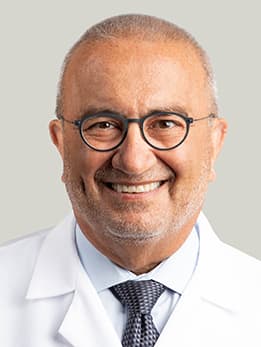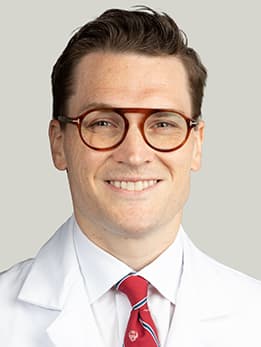Cerebral Cavernous Malformation (CCM)
For neurovascular surgery, CCM or clinical trials, contact our clinical coordinator at 773-702-5595.
Center of Excellence for Cerebral Cavernous Malformations

At the University of Chicago Medicine, our neurovascular care experts are leaders in the management of cerebral cavernous malformations (CCM). This under-diagnosed brain condition afflicts one in 200 people, including more than 1 million Americans, according to the Alliance to Cure Cavernous Malformations. Offering a depth of experience, our integrated physician team provides highly effective, innovative care for adults and children with CCM. Individuals and families routinely travel from other states and countries seeking our proven expertise in CCM care.

About Cerebral Cavernous Malformations (CCM)
A CCM is a cluster of weak, dilated blood vessels that form bubble-like structures called caverns. Often compared to the shape of a raspberry, the blood-filled caverns can leak and cause symptoms to occur. There are a few interchangeable terms used to describe this condition, including:
- Cerebral cavernous malformation or CCM
- Cavernous angioma
- Cavernous hemangioma
- Cavernoma
CCM lesions range in size from microscopic to more than an inch wide, and may affect any region of the brain or spinal cord. A person may have one lesion or several at a time.
Lesions should be monitored closely. We also offer blood test screening for individuals at risk for genetic inheritance of this condition. Surgery may be an option for patients with lesions that cause symptoms.
Some individuals experience mild or severe CCM symptoms, while others experience none at all. Symptoms vary significantly, based on the location of the CCM lesion, the strength or weakness of the blood vessel walls, and how much bleeding occurs. Blood may pool inside the vessels or leak into surrounding brain tissue, triggering symptoms such as:
- Bleeding in the brain
- Focal neurologic symptoms, such as weakness or paralysis
- Headaches
- Seizures
A CCM lesion may shrink or grow as it bleeds and reabsorbs blood. As the size changes, the type and severity of symptoms may change. While a lesion may be present in childhood, most people with CCM do not become symptomatic until adulthood. Some asymptomatic lesions are incidentally discovered when a patient has brain imaging for an unrelated reason, such as a CT or MRI scan after a concussion or for evaluation of migraine symptoms. A cavernous angioma with symptomatic hemorrhage (CASH) is most likely to rebleed and merits urgent evaluation. The cases with CASH are also the subject of novel clinical trials, trial readiness and benchmarker research.
In many cases, cavernous angiomas are genetically inherited. If one of your parents has CCM, there is a 50 percent chance that you will inherit the condition. This genetic form of CCM, called familial cavernous angioma (or familial CCM), is more commonly associated with multiple lesions throughout the brain.
At UChicago Medicine, physicians with expertise in neurovascular care and human genetics work together to provide comprehensive diagnostic testing for familial CCM. Our team specializes in the diagnosis and management of all three hereditary forms of this condition: CCM1, CCM2 and CCM3.
CCM3 is the least common — and most aggressive — familial form. Less than two percent of CCM cases in the U.S. are known to carry the CCM3 mutation. Compared to other forms, CCM3 causes an earlier onset of symptoms, higher rates of neurologic complications and more lesions. About half of CCM3 cases require brain surgery in childhood due to serious bleeding in the brains. The CCM clinic at UChicago Medicine has evaluated more CCM3 cases than any other group in the world. Our researchers led a study that defines CCM3 and helps design pre-clinical therapeutic testing, clinical counseling and clinical trials.
Researchers have associated familial cavernous angioma with at least three genes, including a specific CCM1 gene mutation inherited among Hispanic Americans of Mexican descent, and another mutation in the CCM2 gene inherited among families with Ashkenazi Jewish heritage. However, familial CCM involving all three genes occurs in families all around the world.
Sporadic cavernous angiomas are usually associated with a venous angioma, which is another type of vascular anomaly that can develop in the brain. Venous angiomas, also called venous malformations or developmental venous anomalies, are typically harmless unless they trigger the development of CCM lesions.
Radiation exposure has been known to cause CCM mutations, particularly after cranial irradiation for childhood cancers.
For neurovascular surgery or CCM clinical questions, and to request consultations, contact our clinical coordinator at 773-834-5210.
For hospital transfers, call 773-834-8782.
For clinical trials or research studies, contact 773-325-9839.
For the HHT Center of Excellence clinical coordinator, contact 773-702-4347.
Our Integrated Approach to CCM Care
The UChicago Medicine neurovascular team sees more CCM patients than any other center in the world. Our experts in neurovascular surgery, neurology, neuroradiology and medical genetics develop innovative CCM treatment plans tailored to each patient's needs, including the most advanced imaging tailored for CCM. Leveraging the combined experience of our experts, we offer an innovative, collaborative approach to CCM care. The team comprises highly skilled physicians and nurses with extensive training and experience in neurovascular care. Our surgeons have operated successfully on scores of patients with all CCM types and locations. Housed within a world-class academic medical center, our physician team provides definitive diagnosis and comprehensive management of CCM. In recognition of our team's leadership and excellence in CCM care, UChicago Medicine was recognized by the Alliance to Cure Cavernous Malformations as the nation's first Center of Excellence.
If you are traveling from out of town, learn more about hotel accommodations and discounts offered through the University of Chicago Medicine Preferred Hotels Program.
Access a broad range of helpful resources for individuals and families affected by CCM on the Alliance to Cure Cavernous Malformations website.
Evidence-Based CCM Care Guidelines (PDF)
UChicago Medicine physicians worked with other internationally known CCM experts to compile these comprehensive care guidelines.
The University of Chicago Medicine and Comer Children's Hospital provide links to other organizations as a service to our site visitors. We are not responsible for information or services provided on other websites.
Issam Awad, MD, has led research studies on CCM for nearly three decades. His work helped identify the early natural history and genetic origins of CCM, including the discovery of the Common Hispanic CCM1 mutation and more recently the Asheklnazi Jewish CCM2 mutation. He has also studied how immune responses affect CCM lesions, genetic differences in lesions themselves, and different targets for potential treatment of the disease.
Dr. Awad and his research team are currently funded by the National Institutes of Health to study the biology and clinical behavior of CCM. They are developing ways to diagnose and measure CCM disease with imaging tools, including permeability or “subtle leakage” in lesions and the brain and the measurement of iron levels in lesions.
They are also researching biomarkers in the stools and blood that may predict bleeding in lesions. The team is also leading clinical trial readiness and the first clinical trial for CASH cases. If you would like to be evaluation for this research and you think you have suffered a symptomatic hemorrhage in the past year, please call our center's clinical coordinator at 773-834-5210.
Many of our patients participate in CCM research by allowing our team to analyze the data collected during their enhanced MRI scans. This information is used to discover more about the origin and behavior of each CCM lesion, and contributes to the ongoing development of new CCM treatments. Patients may give blood samples for research or donate samples of a lesion removed during surgery for research studies.
All research involving human subjects is totally voluntary, and does not otherwise influence the level of clinical care delivered to each patient. Our research practices ensure the utmost privacy and do not incur additional costs to patients beyond their routine clinical care. Each project is approved by the Institutional Review Board at University of Chicago Medicine.
Expedited patient transfer, urgent transfers and consultations
If you are a healthcare provider and wish to transfer a patient with a neurologic emergency or to speak with our team directly, call our dedicated NeuroICU transfer line at 1-773-839-4774 or 1-872-373-9535. Your call will be answered by an attending neuro-intensivist, addressing ischemic stroke, brain bleeding, status epilepticus, neurotrauma, hydrocephalus, tumors and other neurologic emergencies.
If requested, we will facilitate seamless transfer and make arrangements for bed assignment
To schedule a consultation for a less urgent neurovascular condition, call us at:
- Stroke Neurology: 773-645-4089
- Neurovascular Surgery: 773-352-2225
- Neurointerventional Surgery: 773-692-0287
- Neurocritical Care: 773-834-6742
Meet Our CCM Team
Request an Appointment
We are currently experiencing a high volume of inquiries, leading to delayed response times. For faster assistance, please call 1-888-824-0200 to schedule your appointment.
If you have symptoms of an urgent nature, please call your doctor or go to the emergency room immediately.
* Indicates required field






